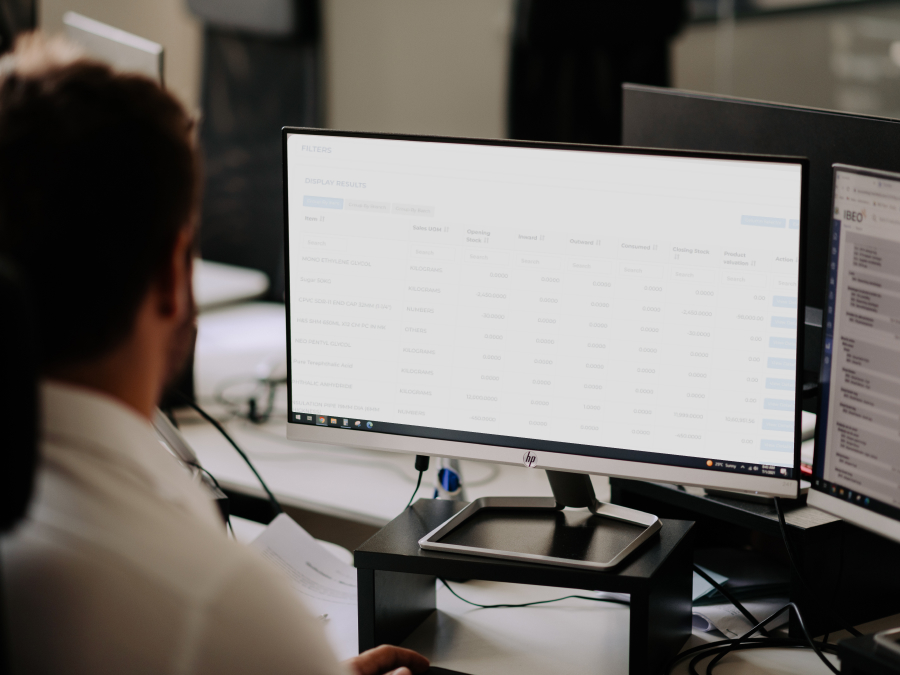
Accounting Clerk Job Description: Key Duties, Skills, and Requirements
Learn what accounting clerks do, the skills they need, and why their role is key to keeping a company’s finances organized and on track.
Learn how Robotic Process Automation (RPA) transforms accounting by automating tasks, improving accuracy, and boosting efficiency.

Today, businesses need faster and cheaper ways to work. Robotic Process Automation, or RPA, is one of the most important new tools helping with this. RPA is very useful in accounting, where it is changing how work is done. RPA helps companies by handling simple tasks, reducing mistakes, and giving accountants time for bigger, more complex jobs. In this article, we will explain what RPA is in accounting and why it’s quickly becoming a must-have for financial operations.
Robotic Process Automation (RPA) is a tool that uses software bots to do tasks. These bots act like humans on a computer. They follow simple rules set by the user. In accounting, RPA can do many repeat tasks. For example, bots can enter data, process invoices, and match account records. Bots can also pull data from files, organize records, and create reports. They do this work quickly and without mistakes.
RPA in accounting uses artificial intelligence (AI) to make bots smarter. AI lets bots understand patterns and learn from data. With AI, bots can improve over time. For example, they can learn to recognize different types of invoices. This makes RPA more helpful for companies because bots can adapt to new information. RPA is flexible and can work with many systems. It doesn’t need changes to the company’s software, making it easy to set up. Accountants can use RPA to manage large amounts of data and complete tasks faster. With RPA, teams can save time and focus on complex tasks like analysis and planning.
RPA in accounting is becoming more common because it boosts productivity. It also lowers costs by reducing the need for manual work. As technology advances, RPA will play an even bigger role in accounting.
RPA offers many advantages for accounting practices. First, it increases accuracy. Bots do not make mistakes like humans do when entering data. This means fewer errors in financial records. Second, RPA speeds up processes. Tasks that used to take hours can now be done in minutes. This allows accountants to finish work faster.
Another benefit is that RPA lets accountants focus on important tasks. With bots handling routine work, accountants can spend more time on analysis and planning. This improves overall productivity and adds value to the business. Companies can also save money by using RPA. Fewer hours spent on manual tasks means lower labor costs.
RPA also helps with compliance. Bots can ensure that all processes follow rules and regulations. This reduces the risk of penalties for not following laws. In addition, RPA can keep track of changes in regulations, helping firms stay updated.
Finally, RPA makes scaling easier. As a business grows, it can add more bots to handle increased work. This flexibility helps companies manage growth without a lot of extra effort. Overall, RPA brings many benefits that can transform accounting practices.
While RPA has many benefits, it also comes with some challenges. One major challenge is the cost of initial setup. Implementing RPA can require significant investment in software and tools. Businesses need to consider these costs before starting. Another challenge is training employees. Staff must learn how to work with RPA tools and understand how to manage the bots. This can take time and resources.
Change management is also important. Some employees may feel unsure or worried about using RPA. They might think that bots will replace their jobs. It is vital for companies to communicate the benefits of RPA clearly. Educating employees about how RPA can help them do their jobs better can ease these concerns. Companies may also face technical issues. Integrating RPA into existing systems can be tricky. Organizations need to ensure their software can work with RPA tools. This might require updates or adjustments to current systems.
To overcome these challenges, businesses should plan carefully. They should start with a small pilot project to test RPA. This approach helps identify any issues early. It also allows employees to gain experience with the technology. Successful pilot projects can then be expanded to include more processes. When businesses tackle these challenges, they can set up RPA in their accounting work. Good planning and support are key. With these, RPA can make accounting faster and more effective.
Robotic Process Automation (RPA) is improving the accounting industry. It helps make tasks easier and faster. Companies that use RPA can make fewer mistakes and save time. This lets accountants focus on more important work. RPA also helps organizations save money and follow rules. As businesses use more technology, knowing about RPA is important to stay competitive. Companies that adopt RPA can grow better in a digital world. By using RPA in their accounting work, organizations can be more efficient and effective. Overall, RPA is a useful tool for success in accounting and more.

Learn what accounting clerks do, the skills they need, and why their role is key to keeping a company’s finances organized and on track.

Learn the core responsibilities and best practices that help finance departments support business growth, stability, and smart decision-making.

Learn the top accounting practices that help businesses stay organized, plan better, and make smarter financial decisions.
Vijzelstraat 68
1017 HL Amsterdam
The Netherlands
Michel de Braeystraat 52
2000 Antwerpen
Belgium
Makenzijeva 57
11000 Belgrade
Serbia
Bulevar Kralja Aleksandra 28
11000 Belgrade
Serbia
Marsala Tita 28
71000 Sarajevo
Bosnia and Herzegovina